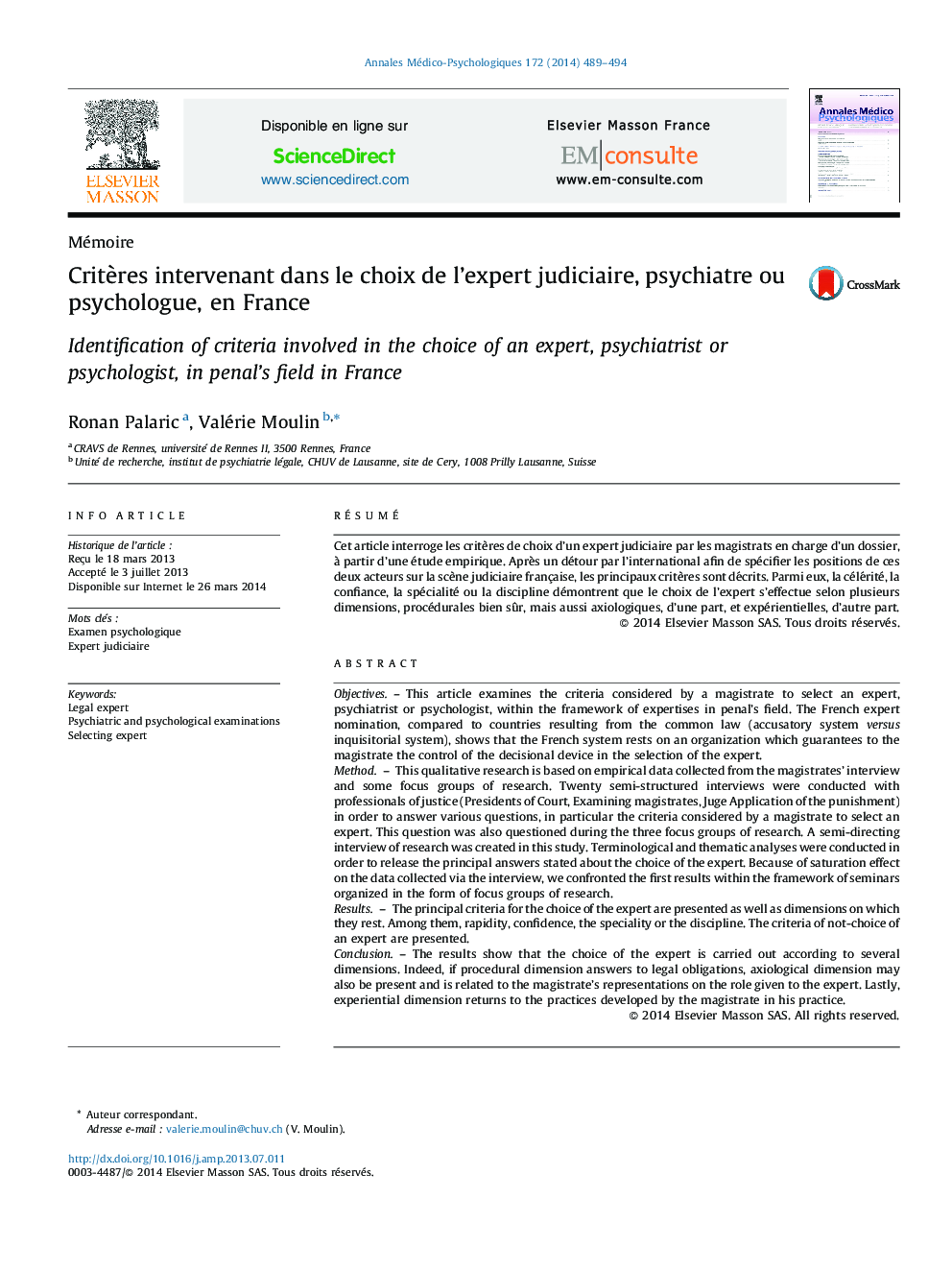| Article ID | Journal | Published Year | Pages | File Type |
|---|---|---|---|---|
| 314110 | Annales Mdico-psychologiques, revue psychiatrique | 2014 | 6 Pages |
RésuméCet article interroge les critères de choix d’un expert judiciaire par les magistrats en charge d’un dossier, à partir d’une étude empirique. Après un détour par l’international afin de spécifier les positions de ces deux acteurs sur la scène judiciaire française, les principaux critères sont décrits. Parmi eux, la célérité, la confiance, la spécialité ou la discipline démontrent que le choix de l’expert s’effectue selon plusieurs dimensions, procédurales bien sûr, mais aussi axiologiques, d’une part, et expérientielles, d’autre part.
ObjectivesThis article examines the criteria considered by a magistrate to select an expert, psychiatrist or psychologist, within the framework of expertises in penal's field. The French expert nomination, compared to countries resulting from the common law (accusatory system versus inquisitorial system), shows that the French system rests on an organization which guarantees to the magistrate the control of the decisional device in the selection of the expert.MethodThis qualitative research is based on empirical data collected from the magistrates’ interview and some focus groups of research. Twenty semi-structured interviews were conducted with professionals of justice (Presidents of Court, Examining magistrates, Juge Application of the punishment) in order to answer various questions, in particular the criteria considered by a magistrate to select an expert. This question was also questioned during the three focus groups of research. A semi-directing interview of research was created in this study. Terminological and thematic analyses were conducted in order to release the principal answers stated about the choice of the expert. Because of saturation effect on the data collected via the interview, we confronted the first results within the framework of seminars organized in the form of focus groups of research.ResultsThe principal criteria for the choice of the expert are presented as well as dimensions on which they rest. Among them, rapidity, confidence, the speciality or the discipline. The criteria of not-choice of an expert are presented.ConclusionThe results show that the choice of the expert is carried out according to several dimensions. Indeed, if procedural dimension answers to legal obligations, axiological dimension may also be present and is related to the magistrate's representations on the role given to the expert. Lastly, experiential dimension returns to the practices developed by the magistrate in his practice.
